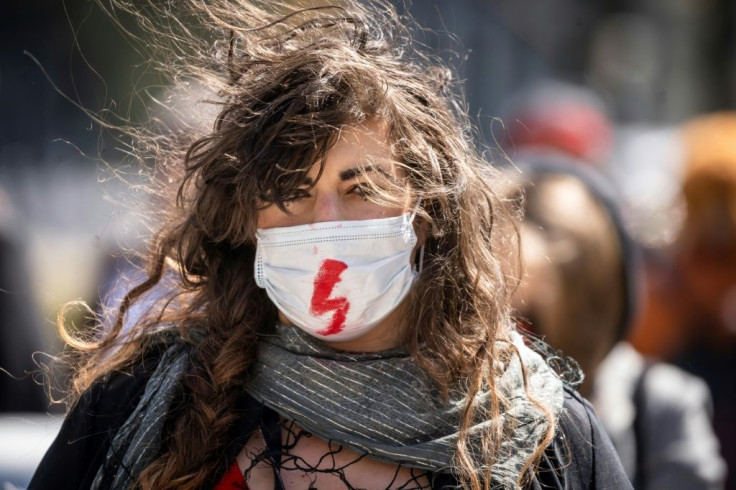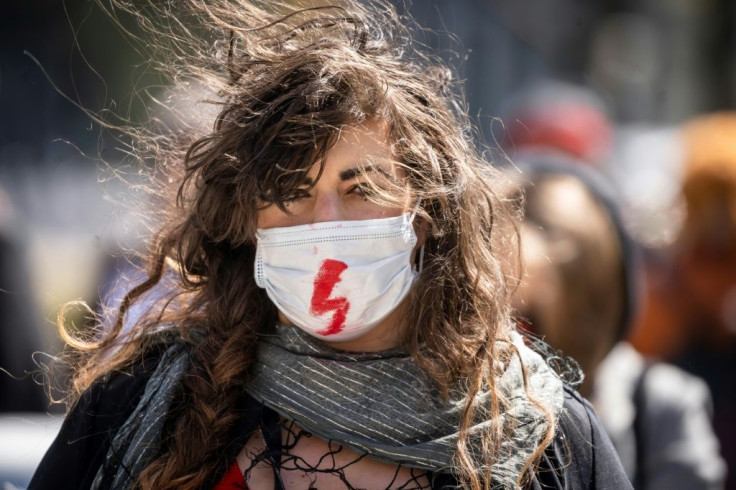Polish Court Allows Stricter Abortion Law, Sparking Outcry
Poland's constitutional court on Thursday struck down a provision of the Catholic country's abortion legislation, allowing what is already one of Europe's most restrictive laws to be further tightened and provoking outcry from rights groups.
Chief justice Julia Przylebska said in a ruling that existing legislation which allows for the abortion of malformed foetuses was "incompatible" with the constitutional protection of life.
The verdict, which is final and cannot be appealed, drew immediate condemnation from the Council of Europe, whose Commissioner for Human Rights Dunja Mijatovic called it "a sad day for #WomensRights".
"Removing the basis for almost all legal abortions in #Poland amounts to a ban & violates #HumanRights," Mijatovic tweeted.

"Today's ruling... means underground/abroad abortions for those who can afford & even greater ordeal for all others."
Amnesty International, the Center for Reproductive Rights and Human Rights Watch also denounced the verdict in a joint statement, saying it "will further harm women and girls."
Several hundred people took to the streets of Warsaw to protest the court's decision, chanting "shame" and carrying signs with slogans such as "my body, my business". Some also held candles.
Since 1993, Poland has only allowed abortions in instances of rape or incest, a threat to the mother's life or a deformed foetus.

Thursday's court ruling could pave the way for lawmakers from the governing right-wing Law and Justice (PiS) party to approve draft legislation that would ban pregnancy terminations in the case of foetuses with congenital birth defects.
Many Polish women bridled when PiS backed the bill originating as a popular petition earlier this year, prompting conservative lawmakers to refer the matter to the constitutional court.
The tribunal, whose main role is to ensure that any law complies with the constitution, underwent government reforms in 2016 that led critics to contend it is stacked with PiS allies.

Former liberal Polish premier and PiS critic Donald Tusk called the timing of the abortion issue "political wickedness".
"Throwing the topic of abortion and a ruling by a pseudo-court into the middle of a raging pandemic is more than cynical," the head of the European People's Party tweeted.
The NGO Akcja Demokracja (Action Democracy), which had gathered more than 210,000 signatures against the stricter law, issued a statement saying the court had delivered "a shameful, political verdict dictated by right-wing fundamentalists".
Leftist lawmaker Barbara Nowacka blamed the devout Catholic country's bishops, telling them at a press conference in parliament: "You have blood on your hands."
Archbishop Stanislaw Gadecki, the head of the Polish Episcopal Conference, said that he "very much" welcomed the verdict.
"The life of every human being, from the moment of conception to their natural death, is of equal value to God and should be equally protected by the state," he added.
PiS-allied President Andrzej Duda has said that if approved by the parliament, he would sign the draft legislation into law.
On Thursday, his spokesman Blazej Spychalski said "the president's views on this matter are well-known and haven't changed".
"We're satisfied that the constitutional court sided with life," Spychalski added, quoted by the Polish news agency PAP.
The country of 38 million people sees fewer than 2,000 legal abortions a year, but women's groups estimate that up to 200,000 procedures are performed illegally or abroad.
An attempt by the PiS government to tighten the abortion law in 2016 was scrapped following nationwide protests by tens of thousands of women dressed in black.
© Copyright AFP {{Year}}. All rights reserved.





















